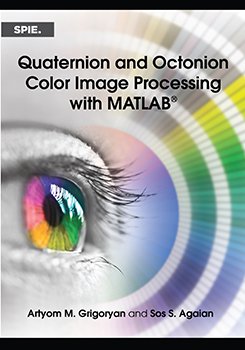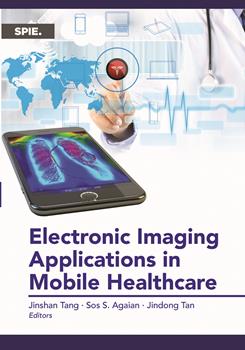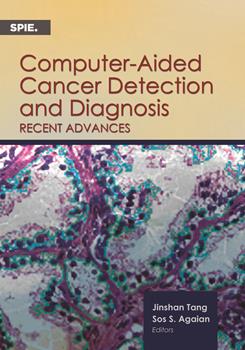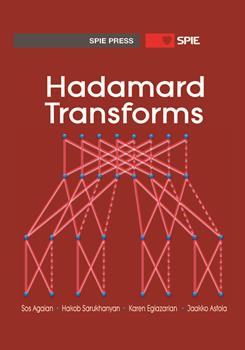Mobile Image Exploitation and Learning 2020
27 April 2020 | Online Only, California, United States
Mobile Multimedia/Image Processing, Security, and Applications 2019
15 April 2019 | Baltimore, MD, United States
Mobile Multimedia/Image Processing, Security, and Applications 2018
16 April 2018 | Orlando, FL, United States
Mobile Multimedia/Image Processing, Security, and Applications 2017
10 April 2017 | Anaheim, CA, United States
Mobile Multimedia/Image Processing, Security, and Applications 2016
18 April 2016 | Baltimore, MD, United States
Mobile Multimedia/Image Processing, Security, and Applications 2015
20 April 2015 | Baltimore, MD, United States
Image Processing: Algorithms and Systems XIII
10 February 2015 | San Francisco, California, United States
Mobile Devices and Multimedia: Enabling Technologies, Algorithms, and Applications 2015
10 February 2015 | San Francisco, California, United States
Mobile Multimedia/Image Processing, Security, and Applications 2014
5 May 2014 | Baltimore, MD, United States
Mobile Devices and Multimedia: Enabling Technologies, Algorithms, and Applications 2014
3 February 2014 | San Francisco, California, United States
Image Processing: Algorithms and Systems XII
3 February 2014 | San Francisco, California, United States
Mobile Multimedia/Image Processing, Security, and Applications 2013
29 April 2013 | Baltimore, Maryland, United States
Multimedia on Mobile Devices 2013
4 February 2013 | Burlingame, California, United States
Image Processing: Algorithms and Systems XI
4 February 2013 | Burlingame, California, United States
Mobile Multimedia/Image Processing, Security, and Applications 2012
23 April 2012 | Baltimore, Maryland, United States
Multimedia on Mobile Devices 2012
25 January 2012 | Burlingame, California, United States
Image Processing: Algorithms and Systems X
23 January 2012 | Burlingame, California, United States
Mobile Multimedia/Image Processing, Security, and Applications 2011
25 April 2011 | Orlando, Florida, United States
Multimedia on Mobile Devices 2011
25 January 2011 | San Francisco Airport, California, United States
Image Processing: Algorithms and Systems IX
24 January 2011 | San Francisco Airport, California, United States
Mobile Multimedia/Image Processing, Security, and Applications 2010
5 April 2010 | Orlando, Florida, United States
Image Processing: Algorithms and Systems VIII
19 January 2010 | San Jose, California, United States
Multimedia on Mobile Devices 2010
18 January 2010 | San Jose, California, United States
Mobile Multimedia/Image Processing, Security, and Applications 2009
14 April 2009 | Orlando, Florida, United States
Multimedia on Mobile Devices 2009
19 January 2009 | San Jose, California, United States
Image Processing: Algorithms and Systems VII
19 January 2009 | San Jose, California, United States
Mobile Multimedia/Image Processing, Security, and Applications 2008
19 March 2008 | Orlando, Florida, United States
Image Processing: Algorithms and Systems VI
28 January 2008 | San Jose, California, United States
Mobile Multimedia/Image Processing For Military And Security Applications 2007
11 April 2007 | Orlando, Florida, United States
Image Processing: Algorithms and Systems V
29 January 2007 | San Jose, CA, United States
Mobile Multimedia/Image Processing for Military and Security Applications
20 April 2006 | Orlando (Kissimmee), Florida, United States
Image Processing: Algorithms and Systems V
16 January 2006 | San Jose, California, United States
Mathematical Methods in Pattern and Image Analysis
3 August 2005 | San Diego, California, United States
Image Processing: Algorithms and Systems IV
17 January 2005 | San Jose, California, United States
Image Processing: Algorithms and Systems III
19 January 2004 | San Jose, California, United States
Image Processing: Algorithms and Systems II
21 January 2003 | Santa Clara, CA, United States






